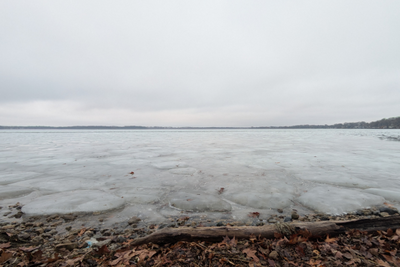New Study Shows Winters on the Great Lakes are Growing Shorter
Tuesday, January 21st, 2025 -- 8:01 AM

(Wisconsin Public Radio) A new study builds on previous research that shows winters on the Great Lakes are growing shorter due to climate change.
According to Wisconsin Public Radio, the Great Lakes have been losing an average of 14 days of winter conditions each decade since 1995 due to warming air temperatures, according to the study published in the peer-reviewed journal Environmental Research Letters.
The study’s lead author Eric Anderson, an environmental engineering professor with the Colorado School of Mines, said researchers arrived at their findings by examining ice conditions and surface water temperatures.
“We do see that winter time, whether you think about it in terms of ice or think about in terms of really cold water temperatures, we’re just seeing less days where those conditions exist,” Anderson said.
Research has already found the Great Lakes are losing ice cover at a rate of about 5 percent each decade for a total loss of 25 percent between 1973 and 2023.
Those changes are occurring as the region has seen among the greatest increases in average winter temperatures over the past 50 years. The study builds on that research by focusing on changes in water temperatures during the winter months.
Anderson noted only Lake Erie typically sees heavy ice cover each winter, whereas the other Great Lakes often see areas of open water. Winter is typically a blind spot for researchers due to difficulties in obtaining measurements when there’s less ice cover on the lakes.
For the study, they relied largely on satellite data, as well as several monitoring stations, to examine how mixing of the lakes from top to bottom may be changing during the winter.
Typically, the lakes tend to mix in the fall and spring when temperatures are the same at the top and bottom.
Feel free to contact us with questions and/or comments.




